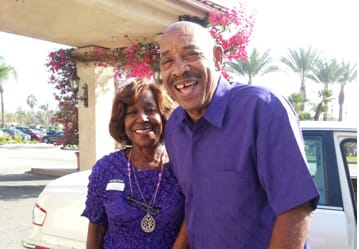Success Stories
Lovell
Working His Way Back Home
Lovell is retired and enjoys golf and bowling. He is also very active in his church. Two months before being admitted to Kindred Hospital, he had developed trouble walking and was diagnosed with Guillain-Barré. That diagnosis was later changed to Chronic Inflammatory Demyelinating Polyneuropathy (CIPD).
Read more about Lovell
Lovell was admitted to a nursing facility, and after he collapsed there he was sent to a short-term hospital where he was intubated, placed on a vent and diagnosed with a collapsed lung and pneumonia. He was unable to talk or eat.
Because Lovell required extensive rehabilitation and ventilator weaning, he was transferred to Kindred Hospital. He was very motivated, and he quickly began progressing through the treatment plan put together by the interdisciplinary care team.
Four weeks after being admitted to Kindred, Lovell was discharged to an acute rehab facility to continue his rehabilitation. He had been weaned from the vent and had advanced to eating a regular diet.
Thank God for Kindred,” Lovell’s wife said. “There was no hope at first, but when we came here we could see the light at the end of the tunnel.”
